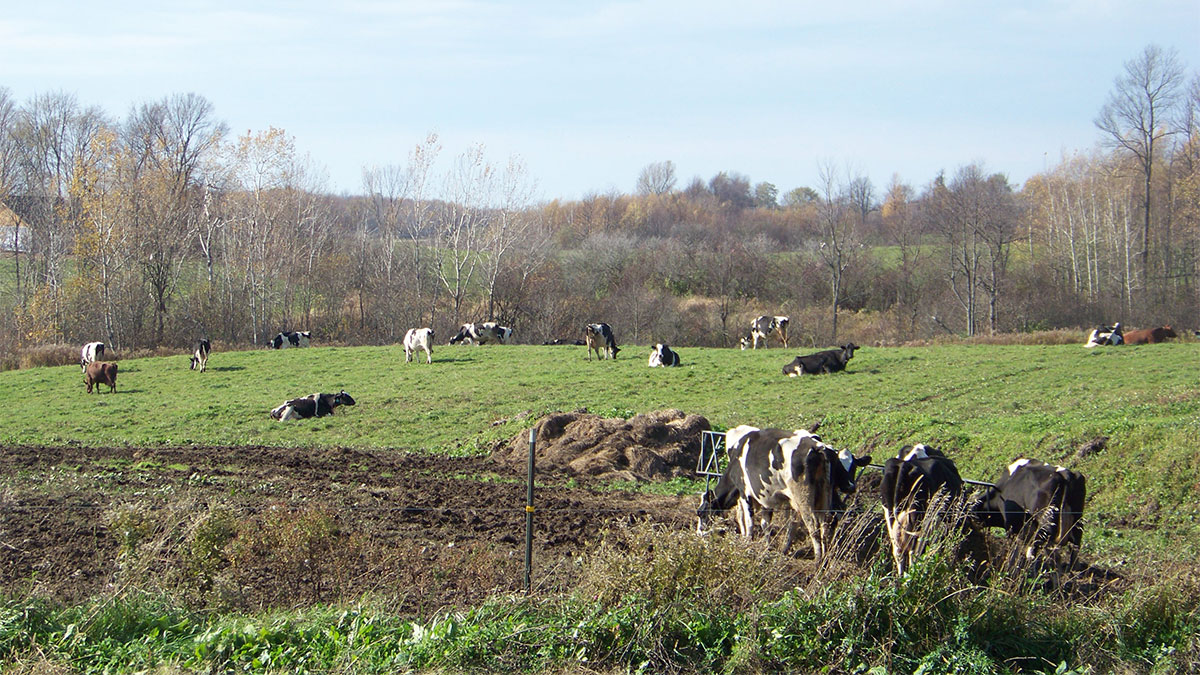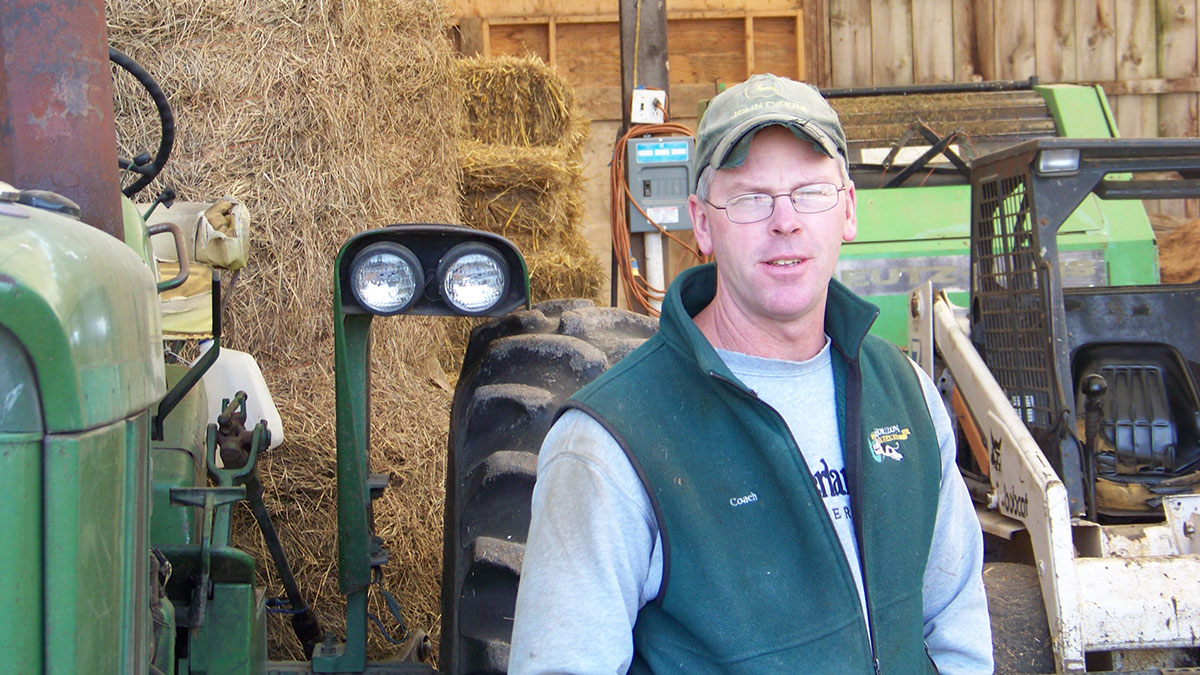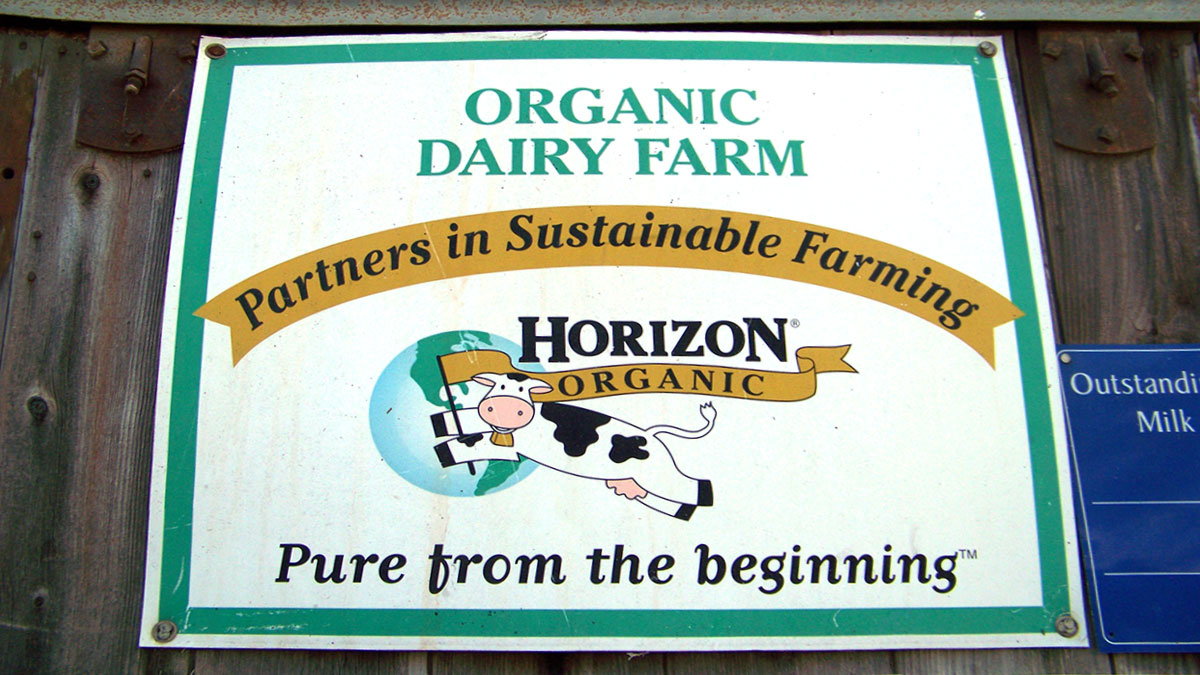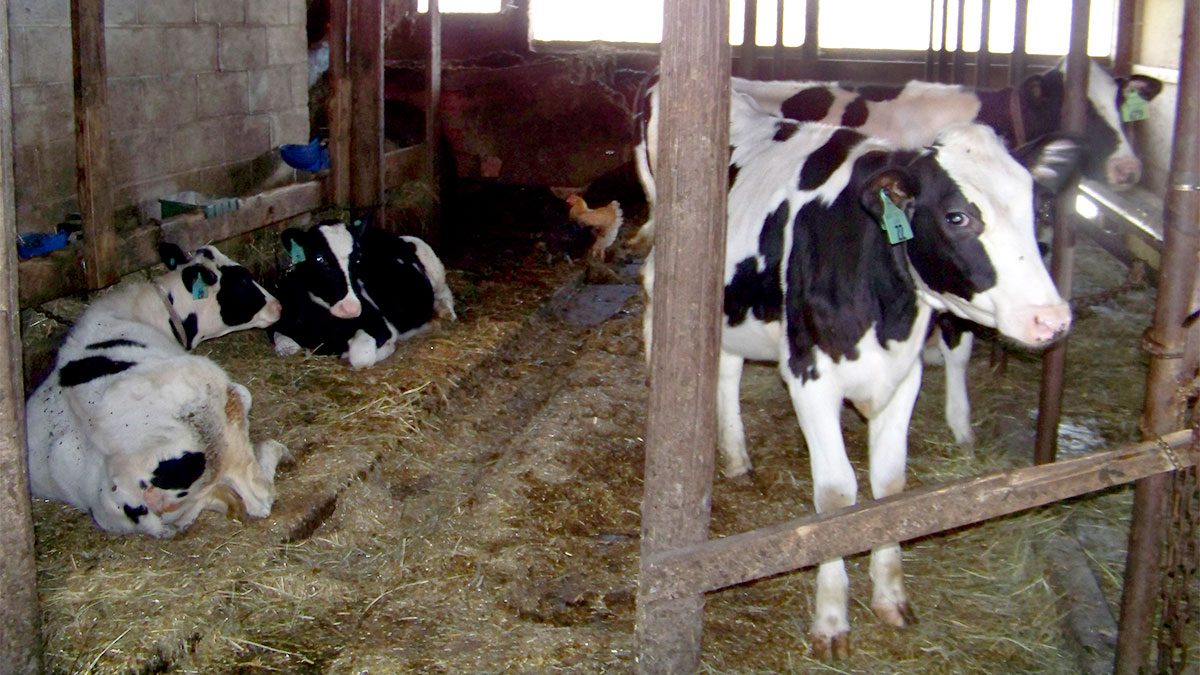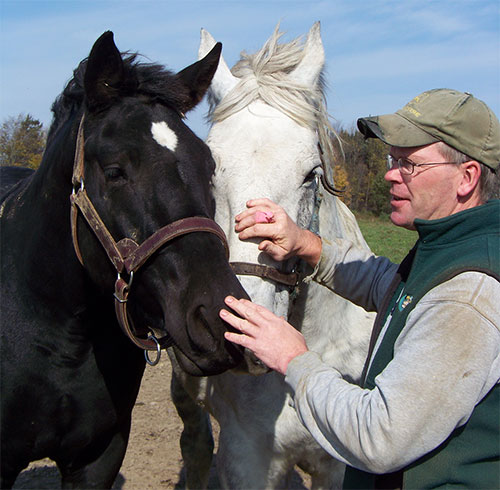
Third generation farmer Jim Young, and his wife Toni, hope to pass their organic dairy farm down to their three children with the help of a unique conservation partnership program involving the U.S. Army, Tug Hill Tomorrow Land Trust, and Ducks Unlimited (a national conservation group working to conserve lands for waterfowl).
The Young family has been farming in the North Country for decades, and they plan to keep it that way, recognizing that their farm is a place that they are invested in, just like the military invests in Fort Drum.
But transitioning the farm to the next generation isn’t easy. One of the challenges farmers often face is transferring the land to the next generation.
It’s not uncommon for the older generation to need to sell their land to the younger generation of farmers—many of whom can’t afford to purchase the land.
The partnership makes common goals possible
In this case, the sale of their development rights (often called a purchase of a conservation easement), allows the Young’s the capital they need to invest in the farm, and their family’s goals of transitioning the land to the kids.
The sale of the development rights also helps reduce development around the Fort Drum Army base, thereby helping to enhance national security by ensuring that the soldiers can train for their mission without having to worry about high density development in the surrounding areas.
Farming is compatible as a neighboring land use to the military base. Funding is provided by the Army as part of its strategic investment for the long-term functionality of its military bases.
Flexible, farm-friendly
Jim Young, knows how hard farming is but is passionate about what it means to him and his family, remarking, “Farming is a lifestyle. It’s a way of life I grew up with, and have grown to love. There is nothing else I would rather do.”
The agricultural conservation agreement (technically called a conservation easement) allows the family to build new agricultural structures, replace existing ones, farm the land and develop home-based businesses in the farmstead area.
It also helps to enhance area water quality and provide for wildlife habitat compatible with farming.
It’s that type of flexibility which is so important to the long-term future of farming in the North Country and the viability of training facilities on near-by Fort Drum.
The Young’s continue to pay the property taxes and are free to sell, transfer, or bequeath the land to others. And while future owners wouldn’t have to farm, they would need to respect the terms of the conservation agreement as it relates to development and future farming activities.
With the conservation of the farm, the Young family’s intent to pass the farm down to the next generation and keep it protected from development forever has become a reality.

